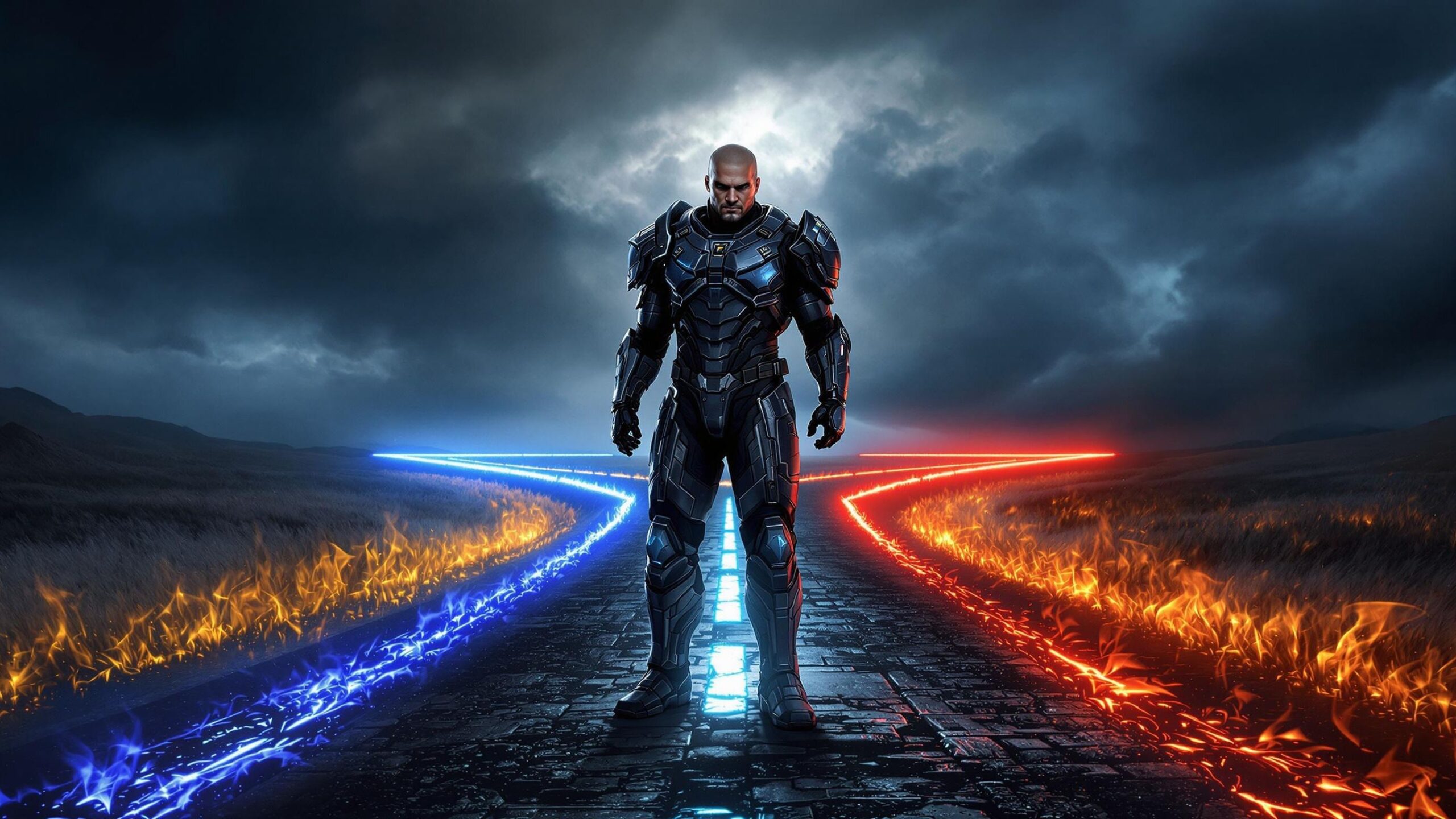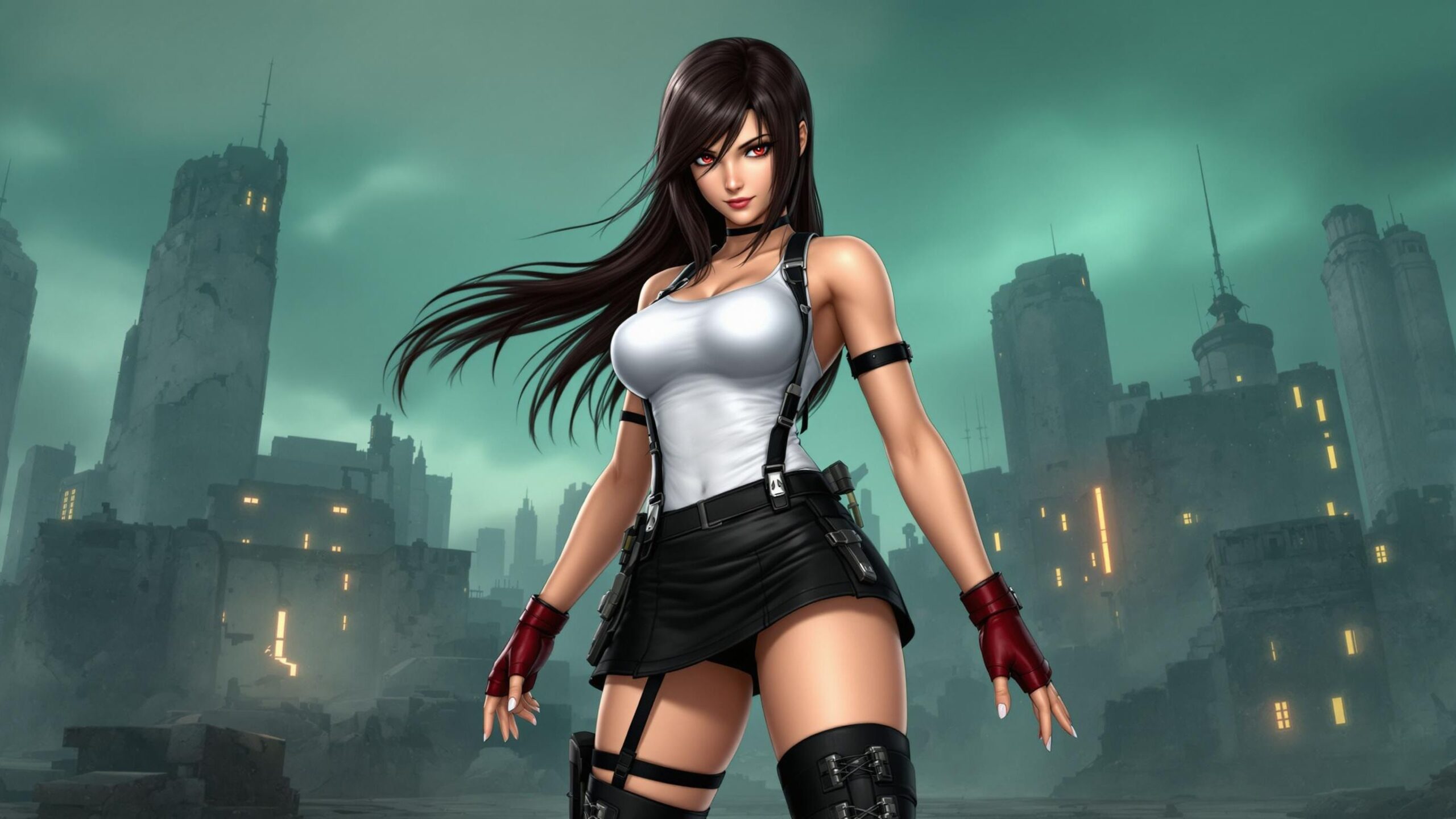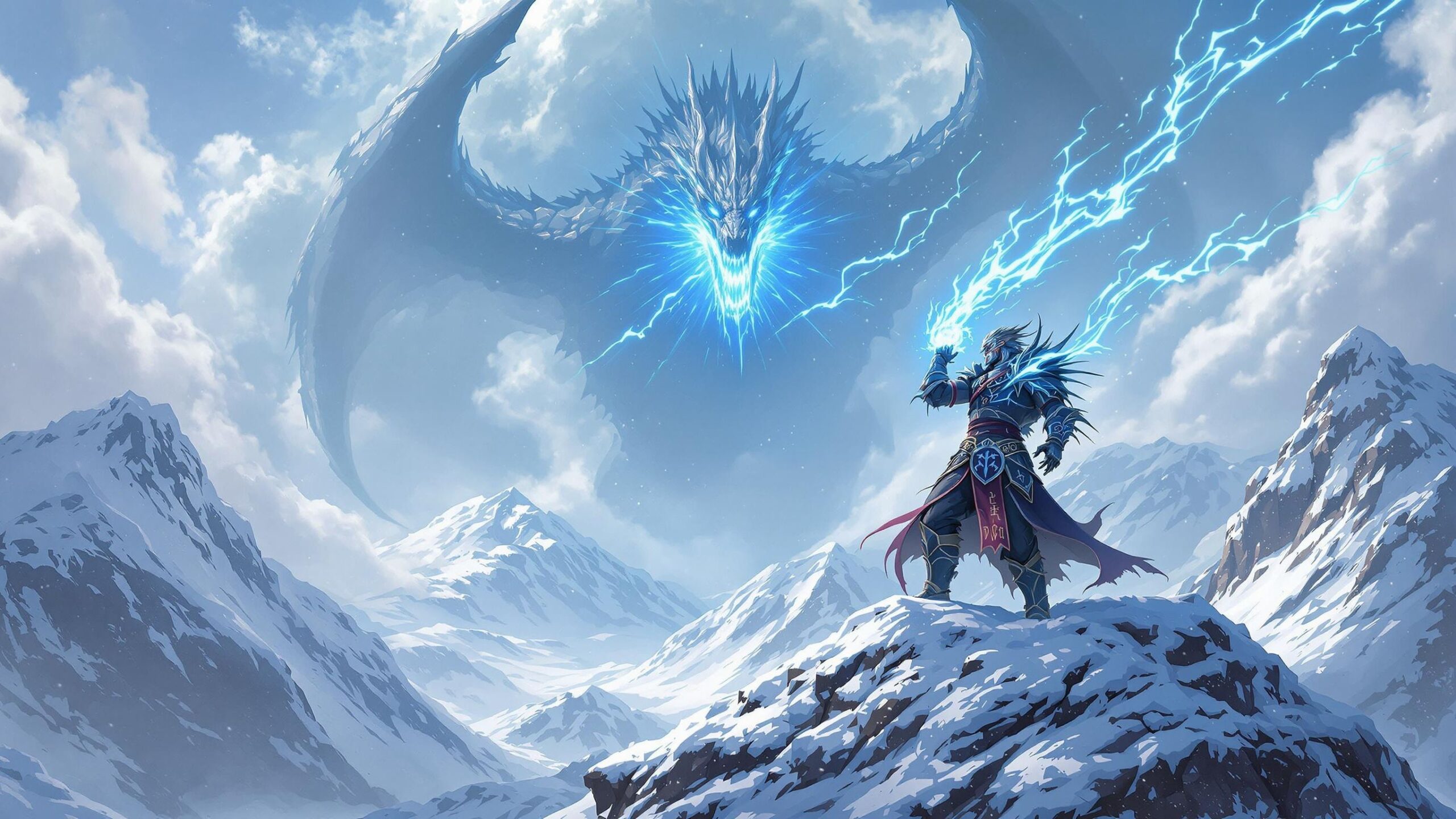Across the Mass Effect trilogy, Commander Shepard wasn’t just a soldier—they were the moral center of the galaxy. Every conversation, every action carried weight. Some choices were easy. Others were gut-wrenching—forcing Shepard to pick between loyalty and pragmatism, mercy and justice, idealism and survival. These decisions didn’t just affect outcomes. They shaped Shepard’s very soul—and challenged players to ask what kind of legend they wanted to leave behind. These are the ten hardest decisions that truly defined Shepard’s morality.
#10: Letting the Council Die or Saving Them – Mass Effect 1
At the climax of the Battle of the Citadel, Sovereign’s forces smash through the Citadel fleet, and Shepard faces an impossible choice: save the Council—an act of heroism but with high risk—or abandon them to focus fire on Sovereign, ensuring victory but allowing galactic leadership to die.
Gameplaywise, saving the Council requires bravery and sacrifice. It feels noble but risky. Letting them die is brutally pragmatic, potentially giving humanity greater influence in the new galactic order.
Lore-wise, this choice defines Shepard’s vision for the future: cooperative galactic unity—or a cold reshaping of power in humanity’s favor.
Bioware developers designed this decision to “challenge notions of utilitarian heroism.”
Whatever you choose the galaxy—and your Shepard—are never quite the same again.
#9: Choosing Udina or Anderson as Councilor – Mass Effect 2
After the chaos of the Reaper reveal and political reshuffling, Shepard must choose who will represent humanity on the new Citadel Council: Captain Anderson, a beloved war hero with integrity—or Ambassador Udina, a skilled but ruthless politician.
Gameplaywise, Anderson is the heart’s choice. Udina is the pragmatic one.
Lore-wise, it’s a lesson about governance: do you value honesty or effectiveness more in a political system struggling to survive galactic chaos?
Choosing Anderson feels good—but costs humanity political clout. Choosing Udina feels dirty—but gets results.
This decision perfectly embodies Shepard’s internal struggle between idealism and realpolitik.
#8: Sparing or Executing Balak – Mass Effect 1 (Bring Down the Sky DLC)
When Shepard confronts Balak, a Batarian terrorist responsible for a deadly asteroid attack, players face a brutal choice: kill him for justice—or let him go to save innocent hostages.
Gameplaywise, this decision is a test of emotional restraint. The temptation for vengeance is real, especially after witnessing the carnage Balak caused.
Lore-wise, it touches on deep racial tensions between Batarians and the rest of the galaxy, complicating the morality of revenge and mercy.
Bioware writers called this choice “the blueprint for Mass Effect’s future dilemmas”—painful, gray, and unforgettable.
This moment proves that being a hero isn’t about winning fights. It’s about who you choose to be when it matters most.
#7: Dealing with the Rachni Queen – Mass Effect 1
In a hidden lab on Noveria, Shepard stumbles upon an ancient nightmare: a surviving Rachni Queen, descendant of a species once driven to near extinction by the Citadel races after a brutal galactic war.
The Queen pleads for her life, claiming innocence for the crimes of her ancestors—and promising that her new children can live in peace. Shepard must decide exterminate her for safety or show mercy for hope’s sake.
Gameplaywise, this decision is pure tension. On one hand, the Rachni’s history is full of violence. On the other, every act of genocide starts with someone assuming there’s no alternative.
Lore-wise, the choice touches on some of Mass Effect’s deepest themes: can ancient evils truly change? Can mercy rebuild what fear destroyed?
If the Queen is spared, she reappears later to repay the favor—proof that compassion can shape the galaxy’s future. But if exterminated, the galaxy loses a potential ally forever.
Developers said this choice was designed to “force players to face the morality of preemptive justice.”
This decision defines Shepard’s approach to redemption: Is forgiveness a weakness—or the ultimate show of strength?
#6: Destroying or Saving Maelon’s Genophage Research – Mass Effect 2
During Mordin Solus’s loyalty mission, Shepard uncovers horrifying experiments conducted by Maelon, Mordin’s former student, in a desperate effort to cure the Krogan genophage.
The data represents years of suffering—but it could help cure the genophage and save an entire species. Shepard must decide: destroy the unethical research or preserve it for future use.
Gameplaywise, it’s agonizing. Destroying the data honors the suffering of the victims. Saving it risks condoning atrocity in the name of hope.
Lore-wise, it mirrors one of Mass Effect’s hardest philosophical questions: Can good come from evil? Is it better to discard knowledge tainted by cruelty—or use it to prevent even greater future suffering?
Mordin’s reaction—whether proud or conflicted—cements how deeply this choice affects the characters around Shepard.
Bioware developers cited this mission as the “perfect microcosm” of the trilogy’s theme: the price of survival versus the cost of your soul.
#5: Sparing or Killing Wrex on Virmire – Mass Effect 1
When the mission to destroy Saren’s Krogan breeding facility is underway, tensions boil over. Wrex, fiercely loyal to his people, threatens the mission, unwilling to see hope for the Krogan erased yet again.
Shepard must defuse the situation—or kill Wrex to complete the mission.
Gameplaywise, this decision is a brutal culmination of player investment. Earlier conversations with Wrex—building trust or sowing doubt—can determine whether peaceful resolution is even possible.
Lore-wise, killing Wrex is a gut punch, removing one of the most complex and beloved characters from the series permanently. Saving him shows Shepard’s mastery of leadership—not through force, but through understanding.
Developers designed Wrex’s confrontation to “test every Paragon and Renegade choice made up to that point,” and it works.
Saving Wrex is a moment of triumph. Killing him is a haunting stain that will color the rest of Shepard’s story. Either way, Virmire becomes a battlefield for Shepard’s soul.
#4: Handling the Heretic Geth – Mass Effect 2
After helping Legion find the Heretic Geth base—machines that split from their brethren to serve the Reapers—Shepard faces a chilling decision: reprogram the Heretics to bring them back into Geth society or destroy them to prevent future threats.
Gameplaywise, the choice isn’t black-and-white. Reprogramming preserves life but violates free will. Destroying the Heretics protects others but commits genocide.
Lore-wise, this decision explores what it truly means to be alive. The Geth are more than machines—they’re a thinking, evolving society.
Legion’s input adds layers: is rewriting the Heretics saving them or erasing them?
Bioware writers crafted this dilemma to “push players into questioning the definition of morality itself.”
Shepard’s decision here defines their relationship with AI, freedom, and the frightening question of whether doing good justifies playing God.
#3: Choosing Between the Geth and the Quarians – Mass Effect 3
Few decisions in Mass Effect carry the emotional gravity of Shepard’s choice during the climactic battle between the Quarians and the Geth.
After centuries of bloodshed and hatred, the Quarians launch an all-out war to reclaim their homeworld, just as the Geth, upgraded with Reaper technology, gain full sentience and independence. Caught between them, Shepard faces an impossible choice: side with the Geth, side with the Quarians, or attempt the near-impossible—broker peace.
Gameplaywise, the moment is heart-pounding. Failure to achieve peace results in the total destruction of one side. Choosing either side comes with massive consequences, emotionally and strategically.
Lore-wise, this conflict is ancient and painful. The Geth were once Quarian creations, cast out for daring to think for themselves. Shepard must decide whether to honor the Geth’s newfound autonomy or side with the Quarians’ desperate struggle to reclaim their heritage.
Brokered peace is only possible through a culmination of earlier loyalty missions, diplomacy, and player investment throughout the trilogy—a true test of long-term decision-making.
Bioware’s developers have called this choice “the soul of the Mass Effect trilogy.” It’s not just about winning battles. It’s about whether old hatred can ever be overcome—or whether history must always be written in blood.
This moment defines Shepard’s ultimate legacy: as a destroyer of enemies, or a unifier of civilizations.
#2: Destroying, Controlling, or Synthesizing at the Crucible – Mass Effect 3
At the very end of the trilogy, after years of struggle and sacrifice, Shepard faces the ultimate decision: how to end the Reaper threat—and what future to create for the galaxy.
The Crucible offers three options: Destroy the Reapers, ending their cycle of destruction but risking collateral damage (including AI like EDI and the Geth); Control the Reapers by merging Shepard’s consciousness with them; or synthesize all organic and synthetic life into a new hybrid existence.
Gameplaywise, the weight of this decision is staggering. It’s not just a personal choice—it’s a choice that will define galactic evolution for all time.
Lore-wise, each option carries massive implications: Destroy is vengeance and freedom—but at a terrible cost. Control is sacrifice and stewardship—but at the risk of losing one’s humanity. Synthesis is transcendence—but achieved through irreversible, forced transformation.
The developers intended this choice to mirror the trilogy’s core themes: survival, sacrifice, unity, and legacy. No option is without loss. No option is purely “good” or “evil.”
Shepard’s decision at the Crucible isn’t about what they want—it’s about what they believe the galaxy deserves.
This choice doesn’t just define Shepard’s morality. It defines everything.
#1: Saving or Leaving the Destiny Ascension – Mass Effect 1
During the final battle of Mass Effect 1, as the Citadel reels under Sovereign’s assault, Shepard faces a snap decision:
Divert forces to save the Destiny Ascension—the massive flagship carrying the Citadel Council—or allow it to perish to ensure victory against Sovereign with minimal human casualties.
Gameplaywise, this choice tests pure instinct. Time is short. Emotions are high.
Lore-wise, this moment cuts to the heart of Shepard’s role as a leader of all species, not just humanity. Saving the Destiny Ascension shows commitment to galactic unity and respect for life. Letting it fall pushes humanity’s rise but scars diplomatic relations for generations.
The sheer symbolism of the Ascension—a beacon of civilization, tolerance, and hope—makes the choice agonizing.
Developers confirmed this was one of the first major “gray morality” choices designed for the original Mass Effect: Sacrifice the few for the many—or stand for ideals even at high cost.
Whether Shepard saves the Council or lets it die, the decision resonates across the entire trilogy—and defines how the galaxy sees humanity’s future role.
Commander Shepard’s journey was never just about defeating the Reapers or saving the galaxy. It was about the choices—the gut-wrenching, soul-defining moments where morality wasn’t black or white, but infinite shades of gray.
Across these ten decisions, players didn’t just create a hero. They carved out a legend, shaped by sacrifice, hope, and the endless weight of impossible choices.
In the Mass Effect universe, destiny isn’t written by fate. It’s written by the decisions you’re willing to live—and die—with.





